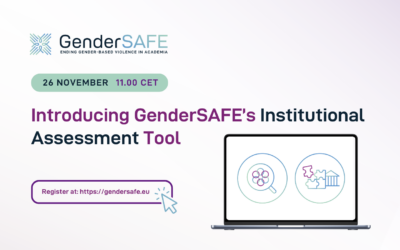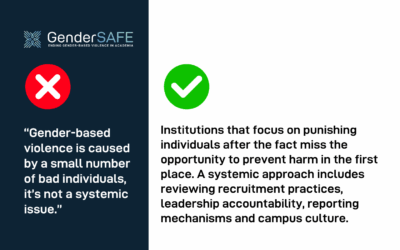Institutions must be accountable for their actions to end gender-based violence
1. Openly publishing and communicating information on unacceptable behaviours defined by the Zero-Tolerance Code of Conduct and establishing reporting procedures, both online and at the entry points to the institution, such as the ombudsperson’s office, confidential councillors, contact persons, and the like.
2. Clear reporting procedures with adequate timelines for consecutive steps and measures to secure the rights of all parties, including the provision of clear information to victims on the steps and progress of the reporting and investigation procedures.
3. Assigning responsibility at a senior level for overseeing the reporting mechanisms / procedures.
4. Equipping case managers and investigators with a thorough understanding of gender-based violence and the skills to manage victim-centred, trauma-informed investigations.
5. Establishing clear roles and responsibilities throughout the entire procedure of case management.
6. Putting in place processes to address breaches of institutional policy in the absence of formal complaints (such as sexist, LGBTIQ-phobic or sexual remarks).
7. Clearly defining forms of sanction, tailored to the type of institution (Research Performing Organisation/Research Funding Organisation/other), for breaches of policy, and working with reporting and responding parties to achieve safety, respect, and dignity for all researchers and for preventing recurring breaches.
8. Actively monitoring and evaluating the measures put in place to assess their effectiveness, identify gaps and needs, react to newly emerging issues, and ultimately build confidence in and the sustainability of the system.
9. Introducing mechanisms for inter- and intra-institutional accountability to ensure the non-recurrence of gender-based violence at the individual and systemic levels, including measures to prevent multi-site serial misconduct.
10. Ensuring sufficient resources are put in place to implement the above.



